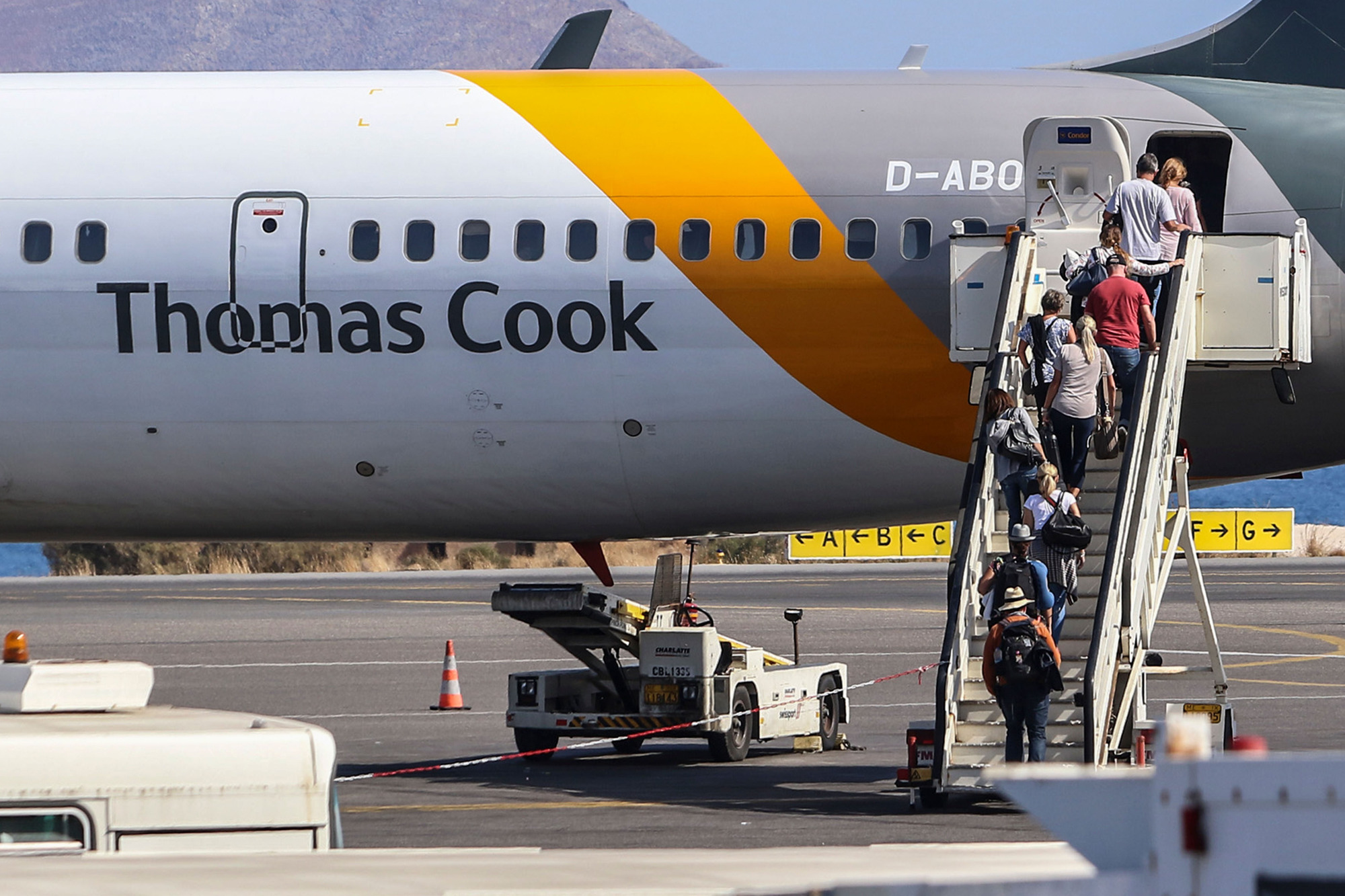The bankruptcy of Thomas Cook Group Plc, the company whose founder is credited with inventing the modern tourist industry, is being blamed on Brexit, a series of bad management decisions and an unsustainable debt level. Perhaps, however, it's worth looking at Thomas Cook's failure as the beginning of the end of the tourism model the company helped create.
Thomas Cook's rise from organizing train "excursions" for the masses in Britain to "Cook Pasha," as he was known in the British-dominated Middle East and North Africa, is well-documented. Driven by the idea of distracting ordinary Brits from drink, the lay Baptist preacher lured them with the idea of going places and seeing things while never leaving their comfort zone. Eventually, Cook arrived at a concept that is still central to the tourist industry. As F. Robert Hunter wrote in a 2004 paper about Thomas Cook & Son, the modern company's predecessor:
"The centerpiece of this new structure was the 'Resort.' Resorts were places dedicated to tourists. They could be sites of great scenic beauty, located in the mountains, or along coastlines. Mineral water locales, once reserved only for the sick, were becoming attractive to tourists. The resort contained a variety of accommodations, geared to different income levels. These ranged from the pension, to the hotel, to the grand hotel (containing hundreds of rooms). The most developed popular resorts had all three types of accommodation, with meals and other services."



















With your current subscription plan you can comment on stories. However, before writing your first comment, please create a display name in the Profile section of your subscriber account page.